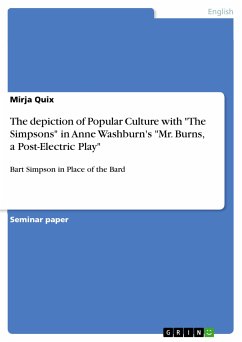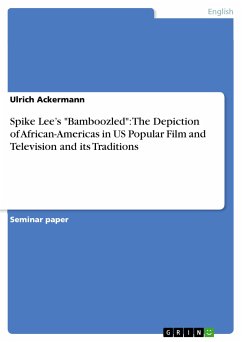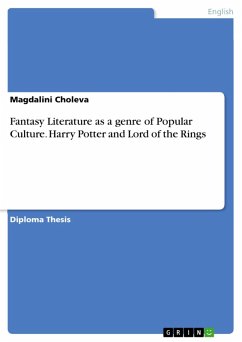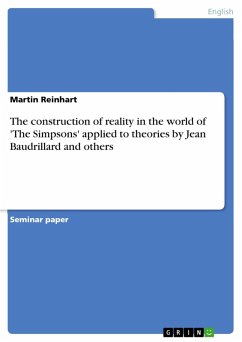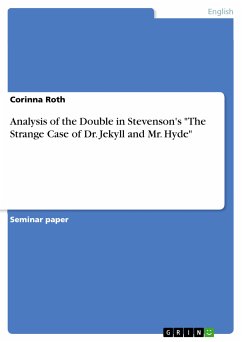Seminar paper from the year 2014 in the subject English Language and Literature Studies - Literature, grade: 2,0, University of Cologne (Englisches Seminar), course: The London Stage, language: English, abstract: A main objective of The Simpsons series seems to be to take every day issues and world events as a part of its stories and to deal with them in a satirical way. While it also concerns itself with apparently banal issues like popular movies or bands, war, politics or nuclear power do not make an exception in the series' content. Mick Broderick points out, that "while many episodes ostensibly do not touch on nuclear themes, the ever- present influence and immanence of the atomic age pervades The Simpsons like a thematic half- life whose motifs contaminate the multi- layered, intertextual narratives of each episode, often as satire." At this background, Anne Washburn's decision to take The Simpsons, of all things, as the one part of popular culture that survives inside the people's memories throughout a nuclear apocalypse, seems even more peculiar and ironic. But that's just what happens in Washburn's "Mr. Burns - A post- electric play". The electric grid is destroyed and people have to adapt to a world without telephones, television, electric stoves or radiators. They have to revert to older ways of engagement, like storytelling, but instead of higher literature they reminisce about parts of popular culture everyone remembers. The following paper therefore will analyse Anne Washburn's play in regard to the way popular culture is represented in her post- apocalyptic world. Why is it important and why is The Simpsons Washburn's main representative of contemporary popular culture in the play? And, moreover, in which ways does the representational form of popular culture change throughout it?
Dieser Download kann aus rechtlichen Gründen nur mit Rechnungsadresse in A, B, BG, CY, CZ, D, DK, EW, E, FIN, F, GR, HR, H, IRL, I, LT, L, LR, M, NL, PL, P, R, S, SLO, SK ausgeliefert werden.

